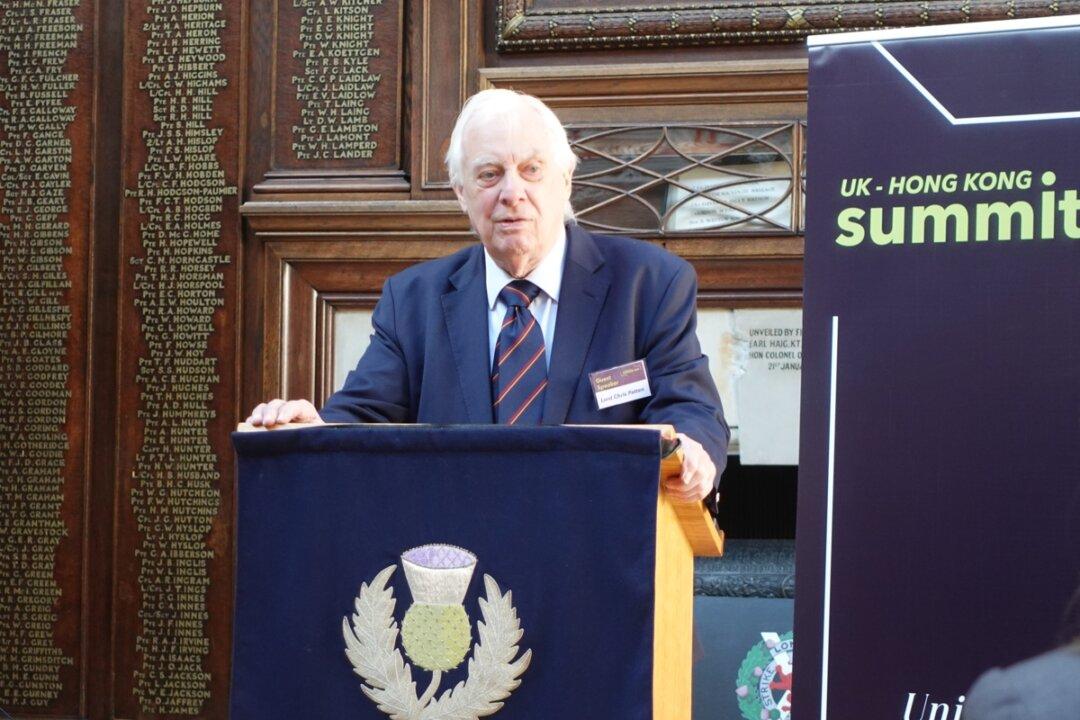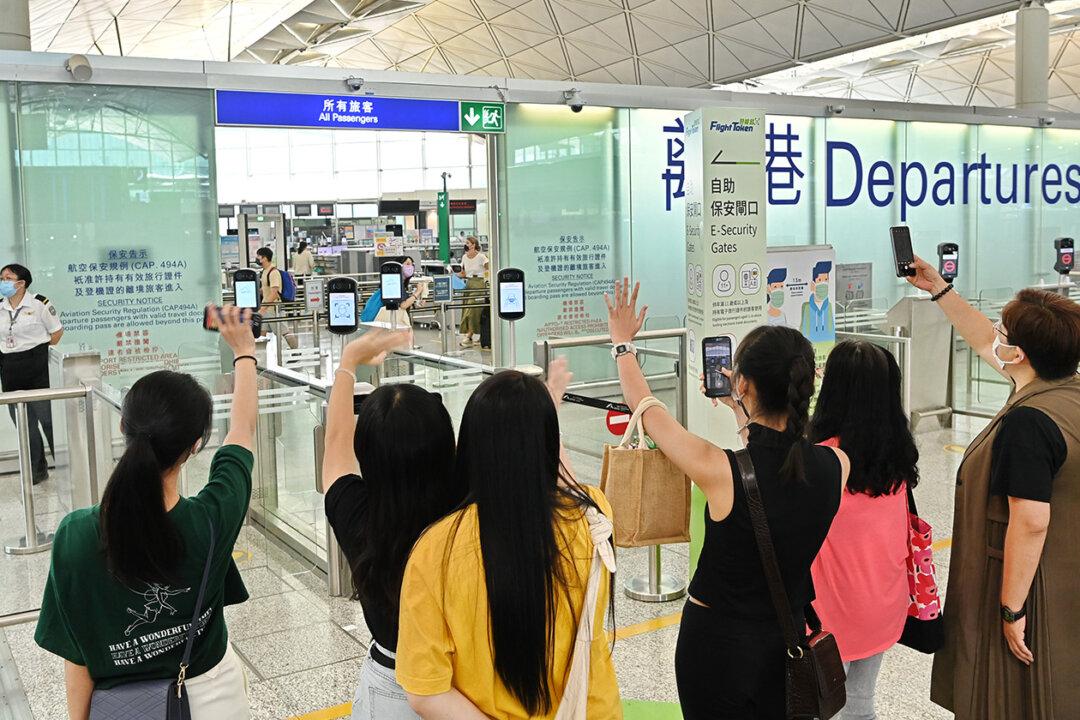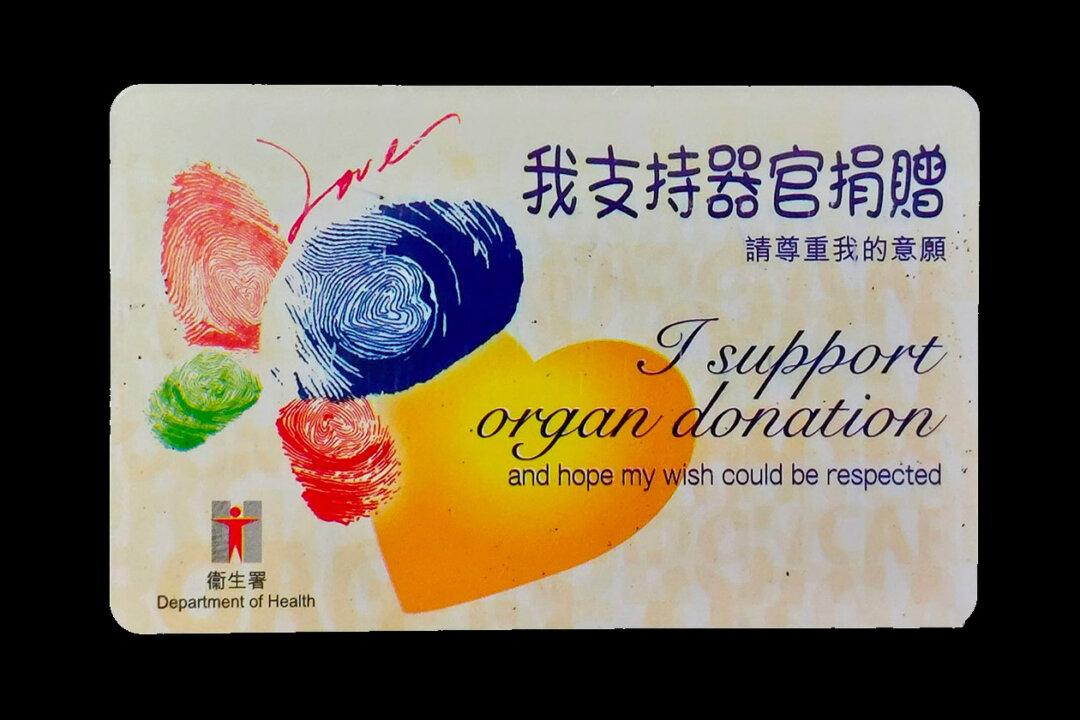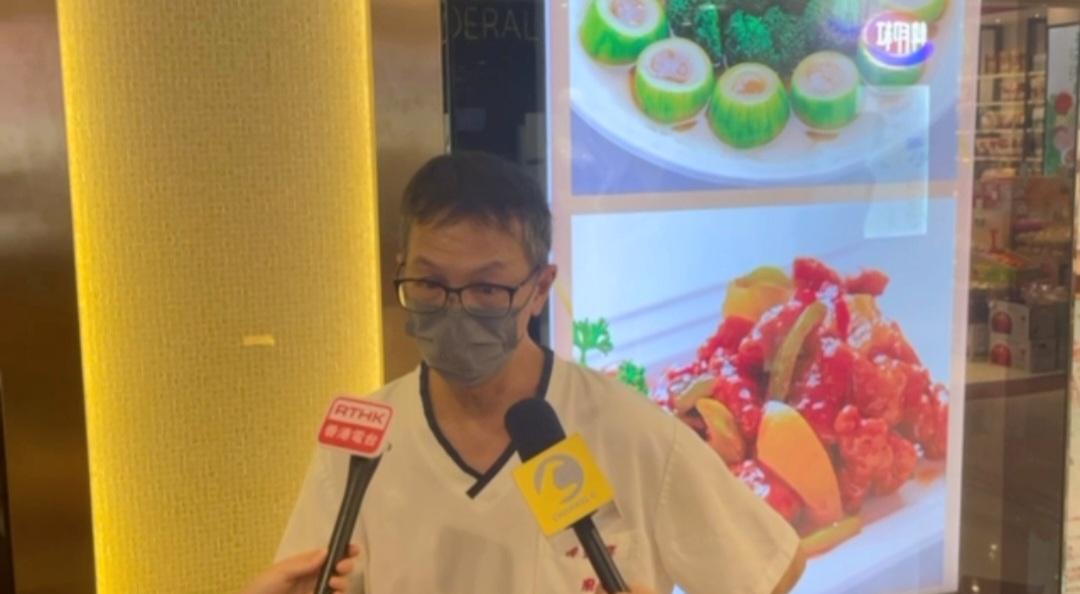Christopher Francis Patten, the last Governor of Hong Kong, was presented with the Order of the Garter, the highest rank of knighthood in England, by King Charles III on Sunday, April 23, on Saint George’s Day.
The recent statement from Buckingham Palace introduces Patten as, in order, “a former Conservative Member of Parliament who became the final Governor of Hong Kong from 1992-1997,” before saying that Patten was first elected MP in 1979 and has served in government for over 20 years, including as Secretary of State for the Environment and Chancellor of the Duchy of Lancaster, and as Conservative Party Chairman.




